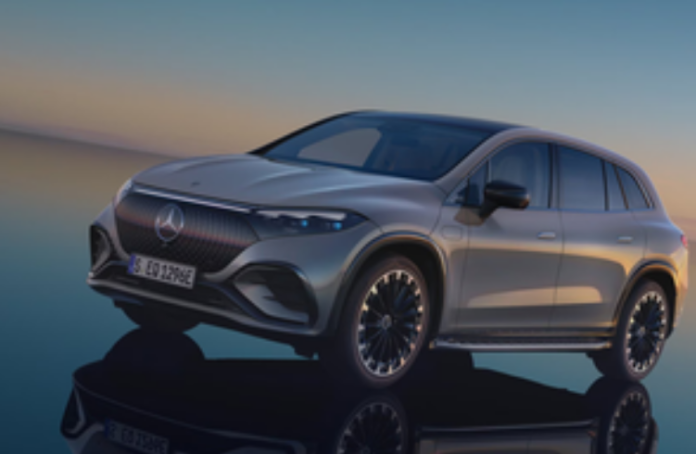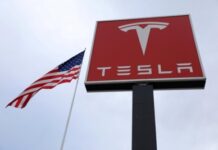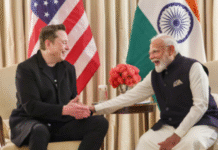New Delhi– As the market for luxury cars and top-notch electric vehicles (EVs) ramp up in India amid friendly government policies and shifting ‘generational mindset’, more and more global automakers are lining up to manufacture/assemble vehicles in India.
The German luxury carmaker Mercedes-Benz has just launched the EQS SUV which is assembled locally in India, which is now the second country to assemble the EQS SUV outside of the US. The made-in-India luxury EV is priced at Rs 1.41 crore.
The auto giant has already been making the EQS sedan in India and has sold around 500 units, as per reports.
Mercedes-Benz is reportedly making an additional investment of Rs 200 crore in 2024 towards manufacturing operations, new product start-ups and digitisation of manufacturing processes in India.
Santosh Iyer, MD and CEO of Mercedes Benz India, said the localisation of the EQS SUV “manifests our local competencies, creates value for Indian customers and supports the government’s vision of ‘Make in India.’”
In May this year, Tata Motors-owned Jaguar Land Rover (JLR) said it plans to start assembling the flagship Range Rover model, along with Range Rover Sport, in India for the first time, significantly bringing down the prices.
The company’s Pune plant currently assembles the Range Rover Velar, Range Rover Evoque, Jaguar F-PACE, and Discovery Sport models. The India-assembled Range Rovers will be available for delivery by the end of this month while Range Rover Sport will arrive in the market by August.
According to N. Chandrasekaran, Chairman of Tata Sons, the local assembly of the flagship models marks an inflection point for the India subsidiary and shows the confidence the company has in the market.
As per industry data, the sale of luxury cars from brands like Lamborghini, Ferrari, McLaren and Aston Martin are experiencing strong demand in the Indian market. According to a latest wealth report by Knight Frank, India is likely to see more ultra-wealthy individuals, with those possessing a net worth exceeding $30 million to reach 19,908 by 2028 — up from 13,263 in 2023. (IANS)







